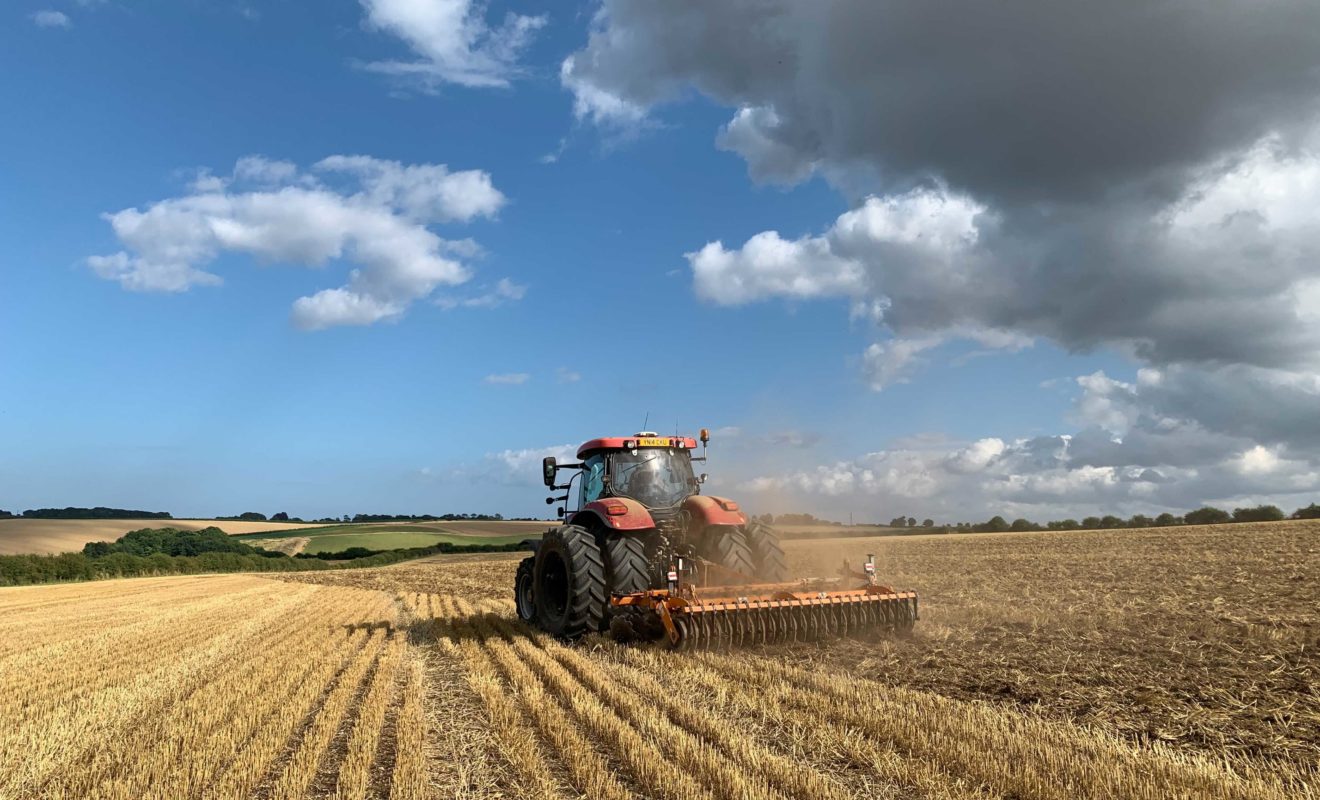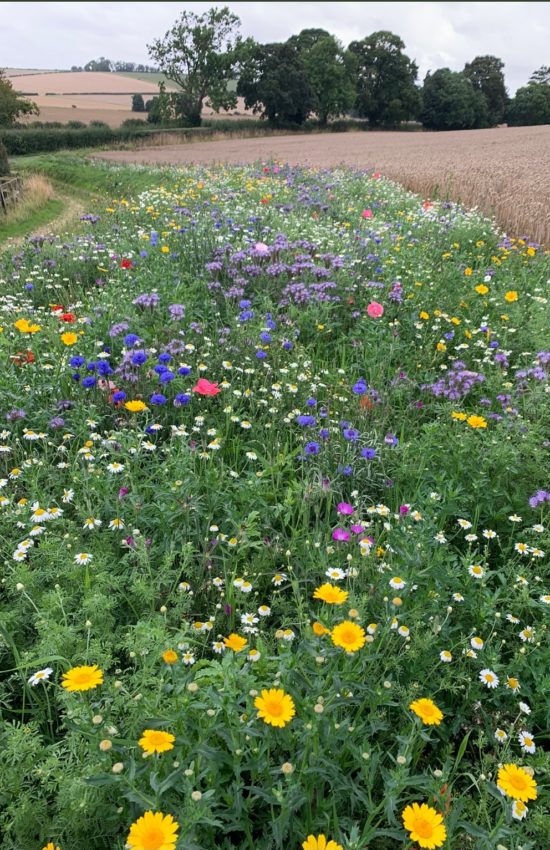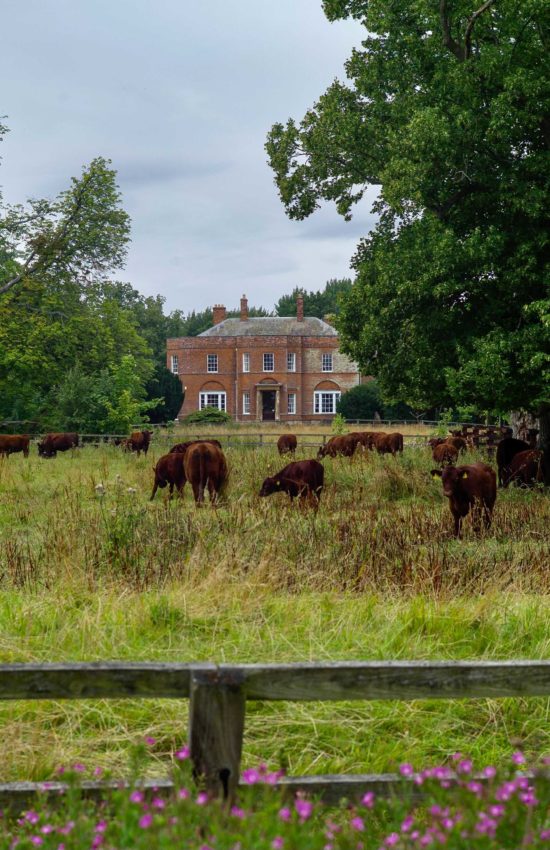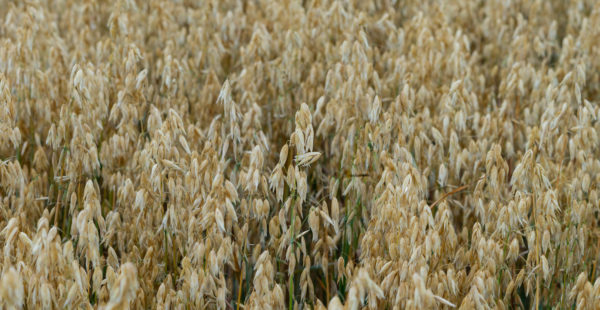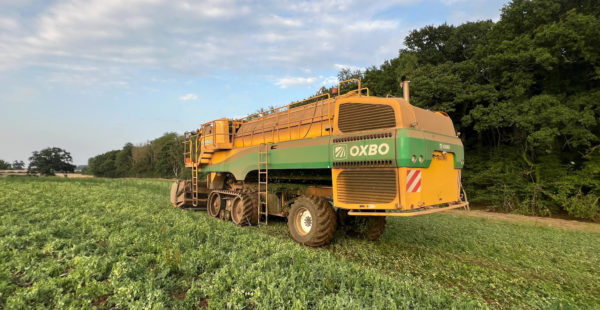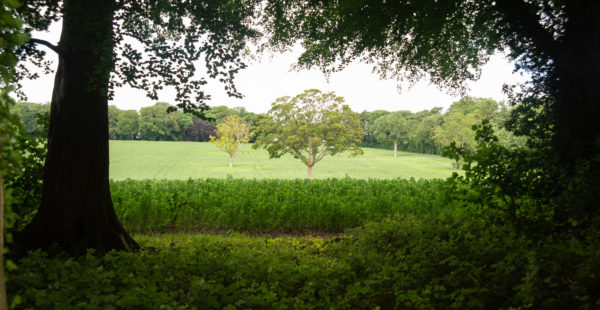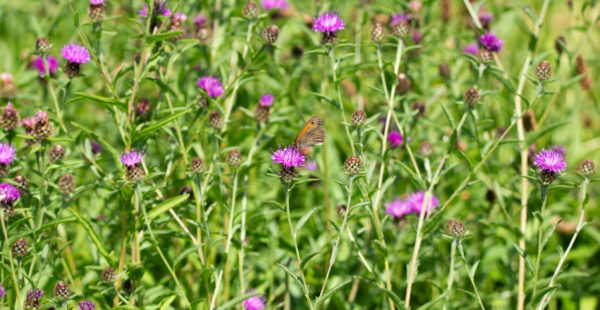No Pesticides
Most pesticides used in agriculture today aren’t specific to one pest and that is the problem, pesticides kill beneficial plants, fungi, and insects.
Organic farming works at creating healthy soil so that plants that grow are healthier and less susceptible to disease, use rotation to prevent the buildup of pests, and attract beneficial insects that eat other insects.
Insects of all types play different roles in a healthy ecosystem by not using pesticides insects flourish. Some are pollinators like bees and hoverflies, some recycle nutrients into the soil like dung beetles, most are a food source for other insects, bats, and birds.
Stopping using pesticides means biodiversity increases.
Higher Animal Welfare
To be certified organic any farms with livestock have to meet high animal welfare standards, cows have to spend on average 200 days out on pasture and eat mainly grass. Our Lincoln Red Cattle are Pasture for Life Certified so have a 100% grass-based diet and are outside in the paddocks for 9 months of the year.
Organic chickens live in smaller flocks, which is better for their health and prevents stress from overcrowding. They have continuous and easy daytime access to the outdoors. Organic chickens must be able to express their natural behaviours, such as foraging and pecking at insects. Our Lincolnshire Buff chickens are rotationally grazed following after the Lincoln Red Cattle have been in the grass paddocks.
Improving the structure of soil and nutrients in it
Healthy organic soil has more organic matter and nutrients in it, which are more bioavailable for plants than artificial fertilisers. Soil is not just brown mud it is a complex ecosystem consisting of worms, burrowing insects, fungi, and many different types of microbes. Organic soil can hold more water and carbon dioxide due to its improved structure and the variety of microbes in the soil.
“Organic soils are around 25% more effective at storing carbon in the long term, with soil carbon increasing on average by 2.2% per year after converting to organic.” Quote from Soil Association website.
Organic farming is one of the ways farmers and landowners can contribute to tackling the climate crisis and loss of biodiversity. It is also a sustainable way to feed people a healthier diet with fewer pesticides and more nutrients in the food they eat. Organic farming is the future of South Ormsby Estate and we will keep you updated with the conversion process over the next year and look forward to being fully organic certified in 2023.
References
Articles about Nitrogen
https://www.bbc.com/future/article/20210603-nitrous-oxide-the-worlds-forgotten-greenhouse-gas
https://www.soilassociation.org/causes-campaigns/fixing-nitrogen-the-challenge-for-climate-nature-and-health/
Animal Welfare
https://www.soilassociation.org/take-action/organic-living/why-organic/better-for-animals/


